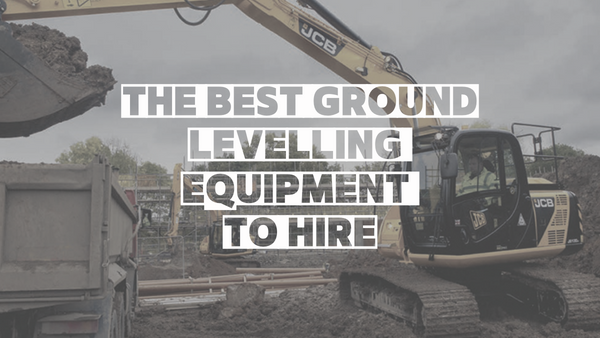The Best Ground Levelling Equipment to Hire
One of the biggest jobs throughout construction and landscaping projects is ground levelling. Ground levelling is an essential stage of any project and is crucial to the overall desired outcome. Poor ground levelling can lead to post-completion complications, that could end in large financial penalties.. In this resource, we are going to highlight all the reasons why ground levelling is essential throughout all construction sectors, along with the best ground levelling equipment to hire to get the job done.
Why ground levelling is important?

Ground levelling is essential to a vast array of construction projects. But why is it so important?
The process is part of at the initial site preparation and takes on many tasks such as land clearing, excavation and in some cases demolition. Incorrect or poor ground levelling can have long-term effects on the outcomes of all construction projects.
Overall, when it comes to ground levelling, you will want to ensure that you get it right the first time around to avoid any costly errors. Some errors which ground levelling will avoid are..
Errors Caused By Poor Ground Levelling
Poor drainage
Along with levelling your work area, correct grading is also very important to promote safe drainage. Poor drainage can lead to unwanted erosion, flooding and encouraging pests to inhabit the area. Grading slopes over a distance allows the free flow of water away from areas you are trying to avoid. This is an essential part of the ground levelling and grading process.
Differential settlement
Differential settlement is the uneven or unequal settling of building foundations. One you certainly want to avoid when it comes to levelling your ground. The process leads to cracking in the foundations as one side of your construction sinks faster than the other. There are many causes for differential settlement such as poor soils, compaction, expansive clay or bedrock issues.
Utility mapping
With a completely levelled construction site, the identification of utilities becomes far easier and above all, much safer. This allows workers to start from scratch and set the foundations correctly, along with not having to excessively excavate to do so.
Access issues
One of the biggest problems with all construction sites face is access to the site itself. Establishing safe access in and out of a construction site to allow workers to complete their jobs faster and safer. This is important to meet agreed construction timelines and avoid any unnecessary penalties.
Grading
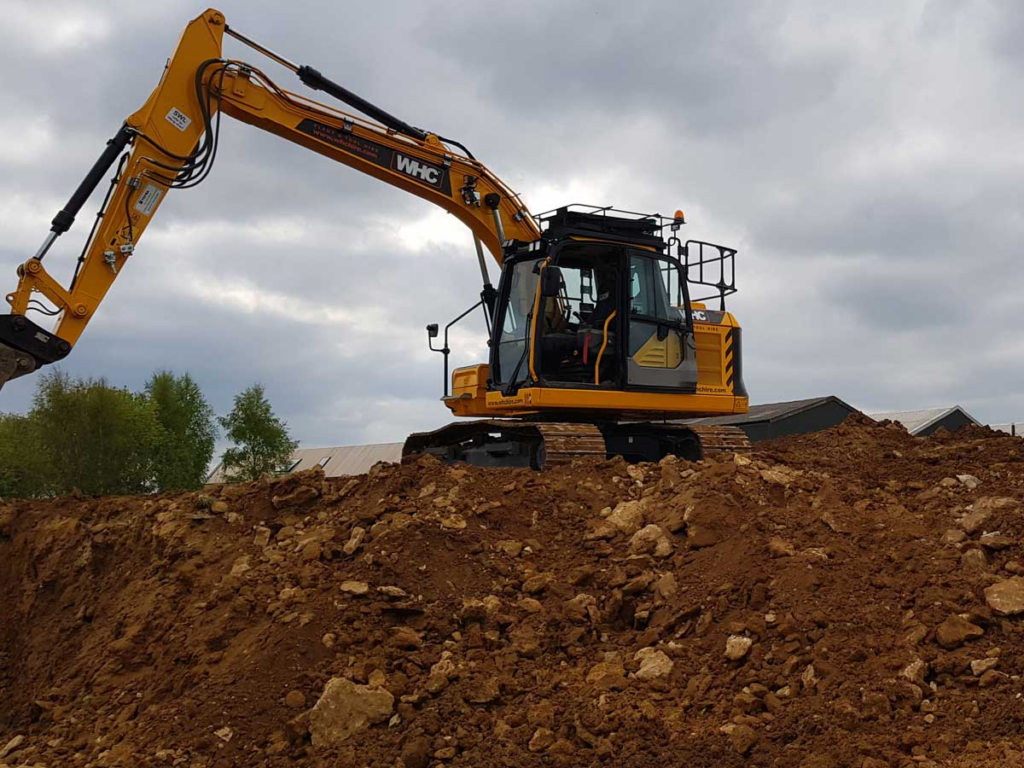
We have previously touched on grading in this resource, but what do we mean by grading..? We’ve established that levelling is creating a new foundation to then construct upon. Grading, however, works differently. Grading is the process of adjusting the earth’s slope and elevation before constructing upon. There are three main reasons why grading is essential on a building site.
- Reconfigure land
- Establish new drainage
- Aesthetics
Reconfigure land
By grading, you ensure that your new construction is compatible to nearby buildings relative elevations, roads and accessibility points. All of which are necessary to the project and its intended outcome overall.
Establish new drainage
Good construction site grading designs allow for the efficient and safe movement of water. In turn, protecting the foundations of the building. Grading is the best way to sculpt and interpret where all storm water will direct to.
Aesthetics
Even though the aesthetics are not essential during the early phases of construction, grading is important when it comes to some of the final touches. Grading is a popular technique used by landscapers and grounds workers to manipulate the ground to create character.
Why should you hire ground levelling equipment?
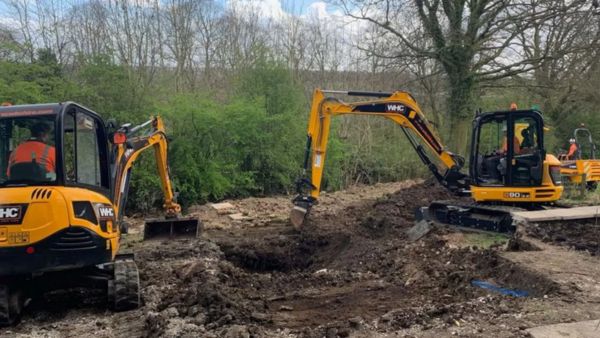
Ground levelling and grading are two different but also important processes of any construction project. But when it comes to choosing how to get hold of the equipment you need, you will encounter many different options. We will touch on a few examples of ground levelling shortly, but first let’s look at the benefits of hiring your ground levelling equipment.
Cost-effective
Hiring your ground levelling equipment is the most cost-effective way to get hold of the machinery you need. Remember, when you hire machinery, you only pay for what you need. Instead of having to fork out a huge amount of capital for a single piece of machinery, you can invest far less for the same outcome. Once you have finished with machinery, you can simply hand it back and no longer be charged for using it. Meaning….no downtime costs. Less stress financially overall.
Flexibility
With the requirement of several pieces of machinery is needed for your construction project, hiring machinery is proven to be far more flexible. When you are done with a particular piece of machinery, you can exchange it for something larger, smaller, completely different… all to cater to your requirements. Otherwise, you can just end your hire agreement and pay no further. With hiring ground levelling equipment, there is generally a minimum term of 24hours. (Supplier dependant)
Availability
The availability of earthmoving equipment in 2022 is becoming more and more sparse. Especially if you are a business trying to order a new machine. Due to the recent pandemic, the manufacturing of new machinery has become backlogged. Leaving around a 24-month waiting list. If you need machinery quick and fast, then there is no quicker way than to hire your ground levelling equipment. Large fleets of equipment offering a range of sizes will generally be far more secure in supplying than smaller firms.
New Equipment
Even though there is a waiting list for the supply of new equipment, you will find plant hire suppliers offering the latest equipment available on the market. How come? Well, a lot of ground levelling equipment suppliers order their machinery well in advice and do so methodically. Some suppliers will continuously have new equipment entering their fleet to keep it up to date and as efficient as possible.
Ground levelling equipment you can expect to hire
Now let’s look at some of the ground levelling equipment you can expect to hire or be on offer.
Large Excavator
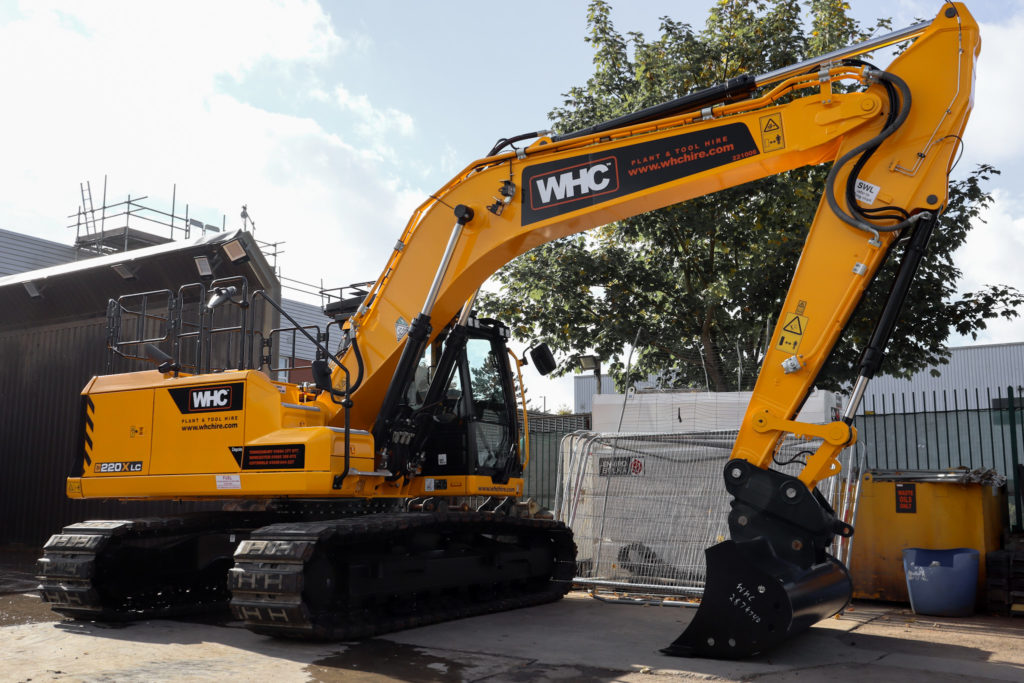
Large excavators are heavily used in most of the initial levelling demolition and grading phases of a construction project. These machines are capable of moving large amounts of earth from one place to another. Additionally, they can also be used to do large grading upon banks as they benefit from their long reach capabilities. A large excavator is considered a go to for construction projects that can accommodate them. See more here.
Mini Excavators
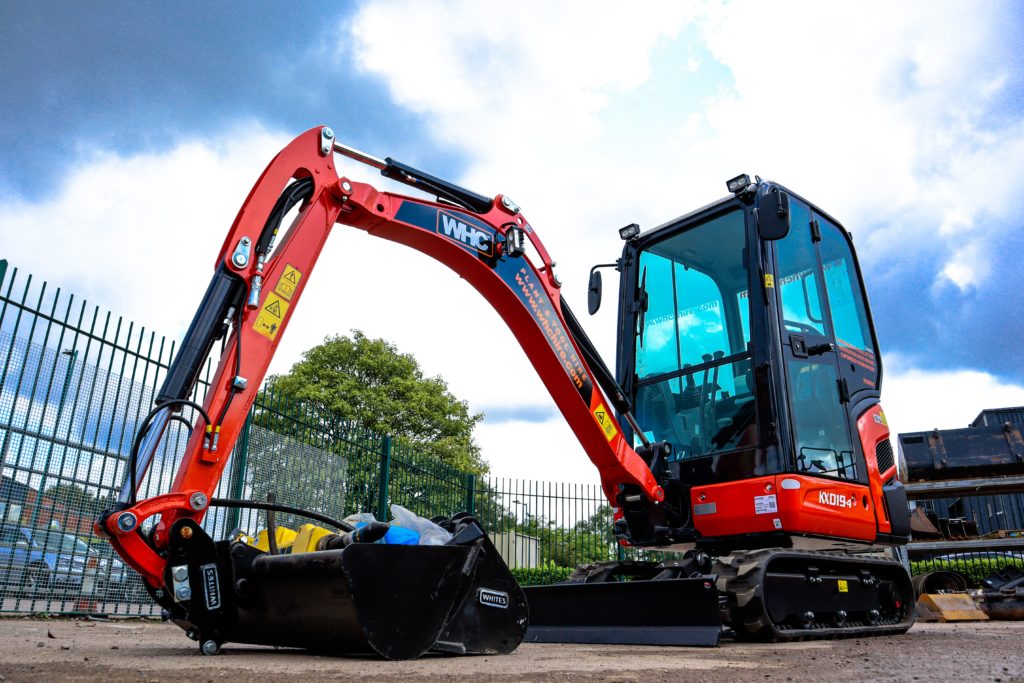
For smaller ground levelling projects, or during those latter stages of a construction project, it is common for businesses to use mini diggers. Firstly, because they can be highly accurate and detailed with them. Secondly, because of their weight. These machines risk damaging the ground after major excavation and levelling has taken place. Mini excavators are ideal for those final touches and landscape grading. See more here.
Dumpers
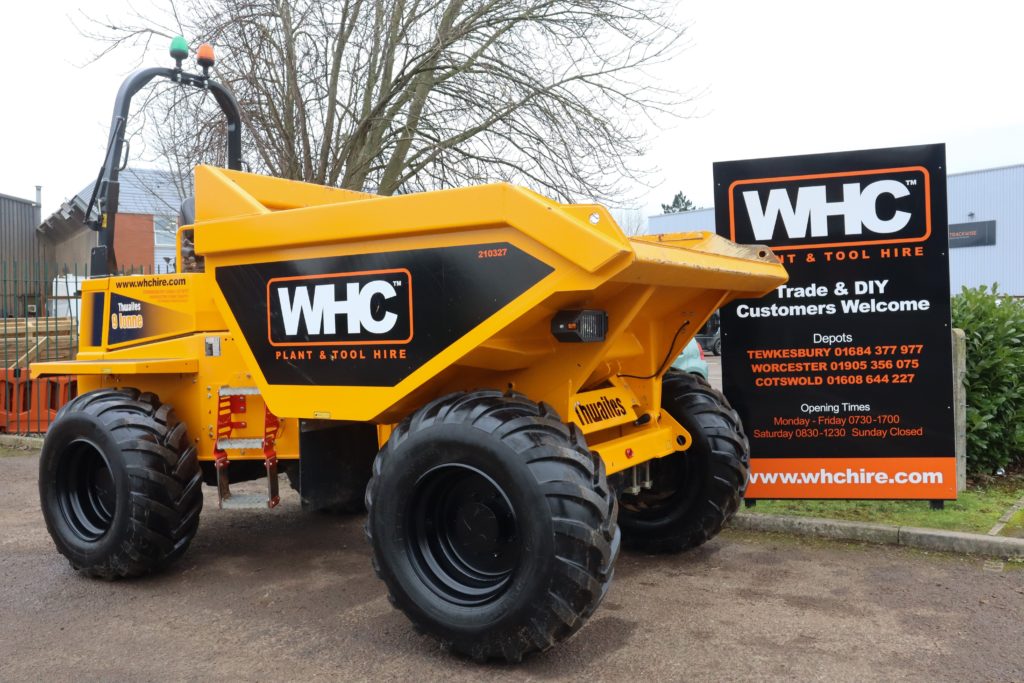
If earth needs to be moved on a construction site, you most likely going to encounter some type of dumper. Dumpers are designed to carry large loads of earth or materials across a building site. They are also built to navigate all types of terrain, making them a perfect match with an excavator. The two main types of dumpers that you might expect to hire, articulated, and tracked. Both offering different benefits to their operation. See more here.
Breakers
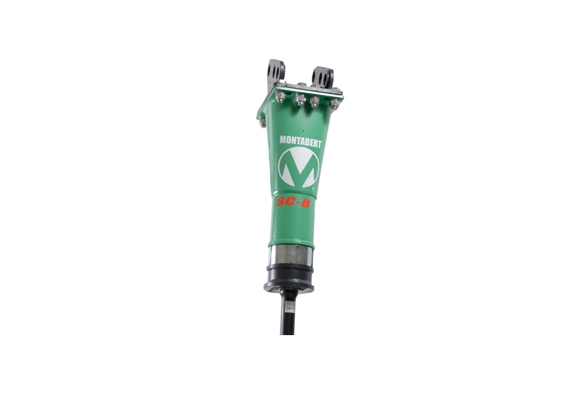
When undergoing demolition or ground levelling, sometimes you will come across materials that cannot be extracted by hand or by an excavator. This is generally where a breaker will come in handy. Most commonly in construction projects in the form of an excavator attachment. The size of your project may permit the use of an excavator, however there are hand tool versions available as well. This machine will send heavy vibrations through your obstruction, leading it to crack overtime. This then make extraction of the obstruction far easier as it is broken down into small pieces. See more here.
Rollers
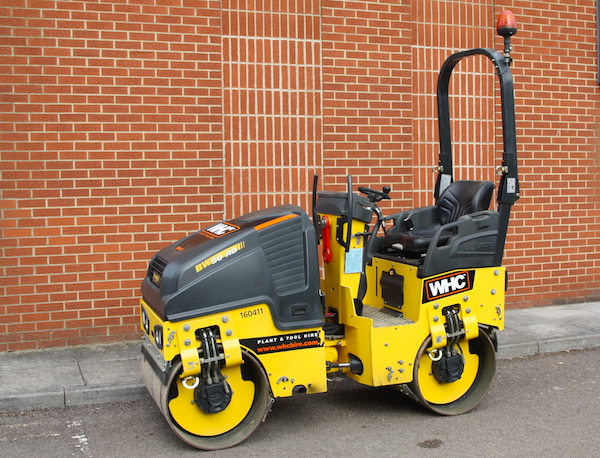
Rollers are pieces of plant hire equipment that is designed to compact the surface beneath it. There are several sizes and weights that can be tailored to your construction project. Each roller may be suitable for certain applications. Most are available with vibration technology to squeeze the surface particles closer together. This results in a solid base from where to build foundations on. See more here.
Laser levels
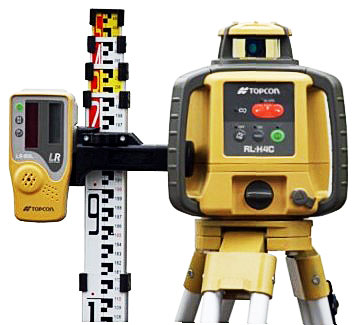
An integral part of a ground levelling project is ensuring that your whole area is the same. For small garden spaces, this isn’t too difficult with the use of a builders level and string line. However, for larger building sites, it is essential that you know where your ground is falling to. Laser levels allow you to test, adjust, determine grades and survey your site more accurately. See more here.
CAT
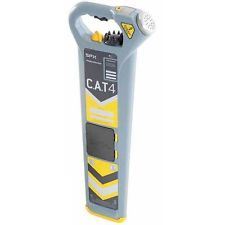
A cable avoidance tool, more commonly known as a CAT scanner. This clever piece of equipment uses radio signals to penetrate the ground to detect any current live wires or pipework. There are two main ways of using this equipment when searching for utilities. Passive search, where the CAT is used on its own to detect present power or radio signals. As well as Active search, where the CAT is attached to the source (for example, a streetlight) and transmits a signal through all the connected pipes and cables. This method also allows user to receive depth readings for the cables. See more here.
Where to hire ground levelling equipment in Tewkesbury UK
WHC Hire Services specialises in the supply of state-of-the-art earthmoving equipment used for levelling and grading construction sites. With equipment from world renowned manufacturers such as JCB, Kubota, Thwaites and more, our extensive fleet of plant and tool hire equipment can be tailored to the needs of our customers.
Long-term rates are available upon request on all our equipment. Find a depot and speak to one of our hire experts, call 01684377977 for a quote today!

